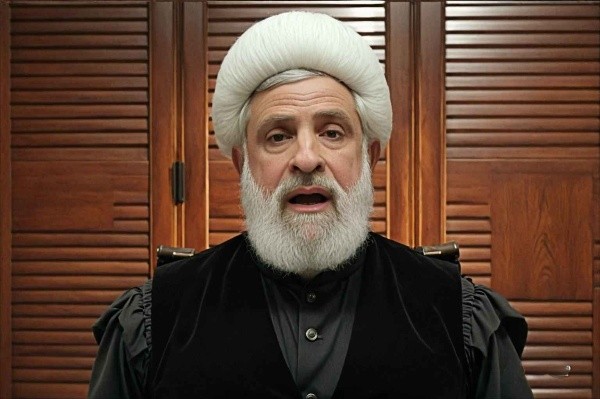Iran’s Plan to Strike Back Against the U.S.
Iran’s Military Preparations Following U.S. Attacks
Loading...

Sheikh Naim Qassem asserts that despite killing of leader, Hezbollah remains militarily capable and ready to meet any Israeli ground offensive.
Sheikh Naim Qassem Delivers a Defiant Message
In the wake of the recent killing of its leader, Hassan Nasrallah, Hezbollah's deputy chief, Sheikh Naim Qassem, has publicly asserted the group's military readiness to confront any potential Israeli ground offensive. Despite the significant loss of leadership, Qassem emphasized that Hezbollah remains capable of continuing its operations and defending Lebanon against Israeli aggression.
Maintaining Military Capability
In a public address on Monday, Qassem expressed confidence that Israel has not successfully diminished Hezbollah’s military capabilities. He described the current situation in Lebanon, where the group has faced extensive bombardment, yet he insisted that Hezbollah’s operations have remained consistent and even intensified since Nasrallah's death. Qassem reassured supporters that new leadership would soon be established through internal processes, although details on the selection were not disclosed.
“We are quite ready, if the Israelis want a ground incursion, the resistance forces are ready for that,” Qassem stated, signaling Hezbollah’s determination to respond to any Israeli offensive. He positioned the group as a steadfast defender of Lebanon, committed to its objectives despite Israel's attempts to instigate chaos through violent attacks against civilians.
Condemnation of Israeli Actions
Qassem did not hold back in his criticism of Israel, accusing it of committing atrocities across Lebanon. He described the Israeli military operations as massacres targeting innocent civilians, including children and the elderly. “Israel attacks civilians, ambulances... It does not fight fighters, but rather commits massacres,” he added, indicating a deep concern for the humanitarian impact of the conflict.
In his remarks, Qassem also condemned the role of the United States, describing it as a partner to Israel through extensive military and financial support. He expressed confidence in Hezbollah’s ability to prevail, recalling their past confrontations with Israel, particularly in 2006.
Reassurance to Supporters
Reporting from Beirut, analysts noted that Qassem’s message was designed to reassure the Shia population of Lebanon, who may feel exposed following the loss of Nasrallah, a figure many regarded as a father figure. The deputy chief’s statements aimed to affirm that Hezbollah remains a potent military force capable of resisting Israeli assaults.
However, the group faces challenges in regrouping after the loss of several senior commanders due to Israeli strikes. The question of how to effectively utilize its arsenal, particularly its long-range missiles, against a formidable military opponent like Israel remains a critical concern.
Escalation of Conflict
The recent wave of Israeli attacks has resulted in over 1,000 casualties in Lebanon within just two weeks, marking a dramatic escalation in the conflict. As Israel has shifted its focus from Gaza to its northern border, it has engaged in nearly daily exchanges of fire with Hezbollah. The Israeli military aims to secure the return of its civilians to northern regions, yet its aggressive actions have raised the stakes for potential all-out war.
On Monday, Israeli strikes reached central Beirut for the first time since the escalation began, indicating a new phase in the conflict that could lead to further military confrontations.
Iran's Position and Lebanon's Response
Hezbollah continues to receive backing from Iran, which has expressed caution regarding the possibility of a wider regional conflict. Iran's Foreign Ministry stated that there is currently no need to deploy additional forces to Lebanon or Gaza, asserting that local fighters possess the strength to defend against Israeli aggression.
In light of the escalating situation, Lebanon’s caretaker prime minister, Najib Mikati, reiterated the government’s commitment to an immediate ceasefire and expressed readiness to implement United Nations resolutions aimed at preventing further conflict. He indicated intentions to deploy the Lebanese army in the southern regions to uphold these resolutions, particularly regarding Hezbollah's presence south of the Litani River.
As the situation continues to evolve, the dynamics between Hezbollah, Israel, and regional stakeholders remain critical in determining the future of peace and stability in Lebanon.
Editor
Iran’s Military Preparations Following U.S. Attacks
Troops remain in five strategic locations, raising fears of renewed tensions and long-term occupation.
Opposition forces have taken control of the capital after a significant offensive. Here is how it unravelled.
